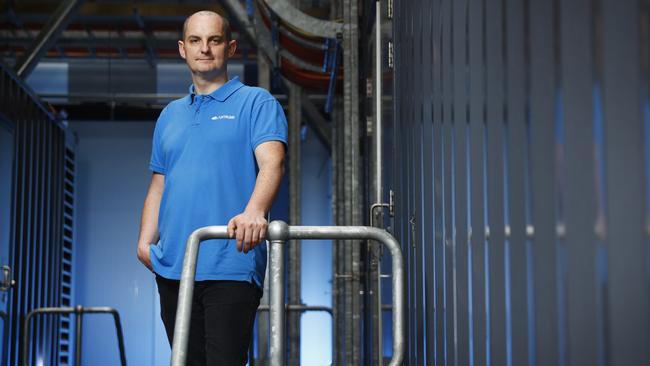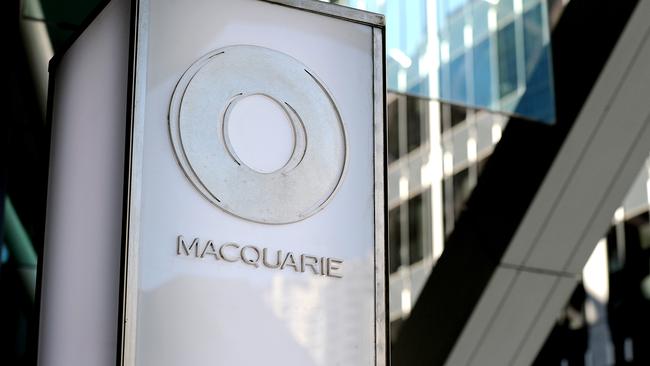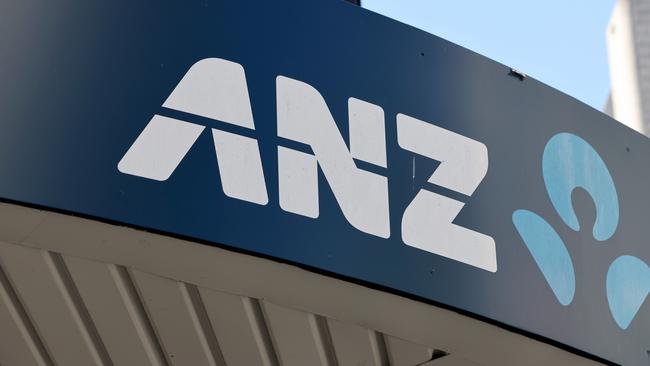
Macquarie was an early player globally in what is becoming an increasingly crowded data centre industry, as demand for centres swells but questions are raised about their power consumption.
Globally, it’s a scramble to get a seat at the table as technology giants, investment houses and real estate groups look to increase their involvement.
Microsoft in May struck a deal with Brookfield Asset Management to plough more than $US10bn ($14.8bn) into developing renewable energy capacity to power rising demand for artificial intelligence and data centres.
Microsoft is also investing $5bn in hyperscale cloud computing and artificial intelligence infrastructure in Australia, which includes adding nine data centres. That will take the group’s data centre footprint to 29 across Canberra, Melbourne and Sydney.
Just last month, a KKR-led consortium and Singtel agreed to invest $S1.75bn ($1.92bn) in ST Telemedia Global Data Centres.
Macquarie is a decent-sized player in the industry with a smattering of investments around the world.
It was the second Macquarie Asia-Pacific Infrastructure Fund (MAIF) that invested in AirTrunk in 2020, in a deal which valued the developer and operator of data centre campuses at $3bn. Macquarie led a consortium including PSP Investments that purchased 88 per cent of AirTunk.
Capital investment has obviously been a priority for AirTrunk, founded in 2015, to help facilitate its growth and data centre rollout. In May, the company opened its second data centre in Tokyo, as it expands its footprint in Japan and across the Asia-Pacific.
Without knowing the amount of capital expenditure Macquarie and others have helped AirTrunk fund, it’s difficult to know exactly how much its owners will reap from the sale. The numbers are, however, expected to be very large by any measure.

MST Marquee banking analyst Brian Johnson estimates Macquarie may earn a performance fee of $500m to $1bn in the 2028 financial year when MAIF2 matures.
“Given continued new contracts, AirTrunk’s valuations have likely continued to rise (above a previously reported $12bn) which bodes well,” he said. “Macquarie managed infra funds are long data centres acquired well before valuations rose sharply.”
Final offers for AirTrunk are due late next month as the sale process enters the pointy end.
MAIF2 is a closed-end 10 year investment fund. The third fund in that Macquarie series also includes exposure to data centres via an investment in Bohao Internet Data Services, a hyperscale data centre developer and operator in China.
Other Macquarie investments in the sector include Netrality Data Centers in the US, which was part of an investor tour by the Australian group last year, Aligned Data Centers based in Texas, and UK and European-focused Virtus Data Centres.
A report by JPMorgan’s analyst Andrew Triggs also noted two direct data centre investments by Macquarie’s capital division, which sit on the group’s balance sheet.
They included an equity investment in California-based Prime Data Centers and a majority investment in pan-European platform KelvinX, which is building an initial data centre in Brussels.
Citigroup’s analysts expect marked growth in the development and construction of hyperscale data centre capacity through the next seven years, as annual demand for data centre power expands by mid-teen compound growth rates.
Macquarie will certainly ride the data centre wave while investment returns remain attractive, but if competition for assets gets too fierce and returns evaporate it may turn its attention elsewhere.
Investors and governments will also be closely scrutinising the energy consumption of data centres – which provide round-the-clock processing and storage of data – and require cooling and ventilation as well.
Many are increasingly tapping renewable energy sources.
ANZ’s headaches
Former ANZ trader Etienne Alexiou and the bank will square off against each other in a six-week Federal Court hearing next year.
The hearing has been scheduled before Justice Nye Perram in September 2025 and the parties are understood to be in the throes of document discovery. Given Alexiou is alleging he was a “fall guy” for raising conduct issues within ANZ’s markets division, the matter will be closely watched.
That’s particularly the case in light of recent and serious revelations the corporate regulator is investigating regarding ANZ, following a complaint and matters raised by the Australian Office of Financial Management.
The Australian Securities and Investments Commission is probing the bank’s trading activities amid allegations of manipulation of bond futures contracts, which affected the 2023 issuance of a 10-year government bond. Regulators are also weighing concerns about ANZ’s culture, particularly within the markets unit.
ANZ last week pledged to take action if it finds evidence of any wrongdoing by its employees.

Treasurer Jim Chalmers was aware of the allegations against ANZ when he signed off on the bank’s $4.9bn purchase of Suncorp Bank, but the potential issue did not trigger detriment under national interest considerations.
They include regional impacts, employment and of course national security.
Interestingly, a statement of claim in Alexiou’s case says he raised a number of issues with ANZ while employed there.
They included a 2014 insider trading allegation and a complaint regarding the bank’s trading in interest-rate derivatives ahead of a bond issuance.
The latter, if proven, sounds remarkably similar to the activities being probed by ASIC now.
Alexiou also claimed he raised concerns in late 2011 – months after starting at ANZ – about the way it conducted the bank bill rate set.
Among other things, he is seeking to draw on sections of the Corporations Act that prohibit the victimisation of a whistleblower.
The case draws in the Reserve Bank and senior ASIC and banking sector figures.
Alexiou was dismissed as ANZ’s head of balance sheet trading in 2015 due to offensive communications via chat messages.
He was stood down in late 2014, alongside a small group of traders, while ASIC investigated ANZ’s participation in the rigging of the bank-bill swap rate.
The bank settled that matter with the regulator in 2017, reportedly for $50m.






Macquarie Group’s data centre investment push is set to reap a bumper payday, as the potential $15bn-plus sale of AirTrunk enters the final furlong.